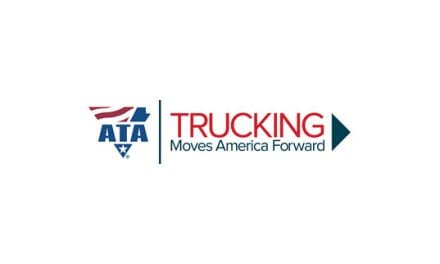By Gary Bevers
How much energy did your organization put into monitoring and auditing your fleet fueling transactions before $4 per gallon fuel and SOX compliance brought such a heightened awareness to fuel costs? For most fleet managers, their efforts had been focused on discount fuel buying and efficiently fueling their vehicles. But, did they get what they paid for?
Today, we face many more challenges, and in most organizations fewer people to administer all the moving parts of the procurement and fulfillment processes. So, what is required for your company to efficiently manage fuel procurement for dozens, hundreds or even thousands of assets? Like many companies do you currently receive duplicate billings? Are your fuel transactions accurately priced? Are you even sure you are paying for the correct quantity? Can you receive odometer readings for each asset? Can you reasonably verify MPG/vehicle to minimize possibilities of theft or fraud prior to approving payment?
Your responses will probably vary with a mixture of yeses and nos. When questioned, many fleets are reporting mixed audit results. Many company audits reported fueling vehicles from other branches and even outside carriers on their property. One particular company’s audit showed they paid over $200,000 in duplicate billings. Others were overcharged at rates well beyond agreed upon contracts. These occurrences were most likely due to honest human error, lost tickets and hard-to-read manual capture of fueling events. And in some cases there are as many lost or miss-billings in favor of the buyer as there are in favor of the Seller.
Manual Data Transaction Capture
Upon examination of common methods used to capture transactions, gather tickets, reconcile gallons, key in data, manually price tickets and upload files its clear the culprit is too many manual touch points. This is particularly a problem with auditing mobile fueling with its large number of small fueling transactions.
Less than 20% of mobile refueling companies make deliveries that digitally post directly to payables without manual intervention. Buyers want as few service providers as possible but it’s difficult if not impossible to find suppliers that offer national coverage for fuel fulfillment services. As a result, an increased number of manual transaction billings. The lack of a true digital thread between most fueling trucks, storage and dispensing equipment means typical fuel transactions cannot stand up to the scrutiny of SOX compliance and security audits.
Advanced Technology
Many progressive fuel suppliers have invested millions in their respective fuel management, data capture and billing platforms to eliminate transaction errors. But do buyers always consider transaction integrity in their selection process? Do buyers switch providers for a penny a gallon even though the lower cost provider is performing the service without digital technology to insure transaction integrity?
Many buyers are now requiring such transaction integrity when selecting their fuel supplier. Further, for mobile fueling transactions some buyers are requiring onboard truck technology that truly captures fueling events digitally, with the highest integrity, as they happen to support a SOX compliant audit trail. Then, the verified transactions can be posted to web portals to scrub transactions with virtually no manual intervention—in real-time.
Technology Solutions Exist Today
Technology solutions, from multiple vendors, are available and in use today. Imagine if your fuel supplier was able to capture these four critical data points from the first click of the meter flowing gallons into your vehicles:
1. Asset ID Number
2. Odometer readings
3. Weights and measures certified gallons
4. GPS vehicle and site locations
And then imagine your supplier could pass along that “verified data” giving you visibility into those digital transactions—as they occur. Not a year later when preforming an annual audit and no one can remember who did what? Plus, what would be the added value of data automatically sent to pricing engines to generate and scrub benchmarked pricing for you the next time you select a supplier or buyer? How would your next audit look now?
Bottom Line?
Even if you are not a public company, and not required to be SOX compliant, you should still examine your company’s fuel transaction auditing practices. It’s just good business sense to ensure you are getting what you pay for when it comes to your fuel bill, one of the largest costs in operating a fleet. And then the next conversation you have should be with your fuel supplier to find out what they have to offer to help you with audits, compliance assurance and managing your bottom line.
 Gary Bevers has 29 years’ experience in product and market development for innovative eSupply Chain Marketing and Logistics solutions designed to increase downstream petroleum distribution efficiencies. His firm focuses on systems and logistics support projects that help companies drive sales and operations more efficiently, especially online. He is the publisher and a founder of Fuel Marketer News.
Gary Bevers has 29 years’ experience in product and market development for innovative eSupply Chain Marketing and Logistics solutions designed to increase downstream petroleum distribution efficiencies. His firm focuses on systems and logistics support projects that help companies drive sales and operations more efficiently, especially online. He is the publisher and a founder of Fuel Marketer News.









